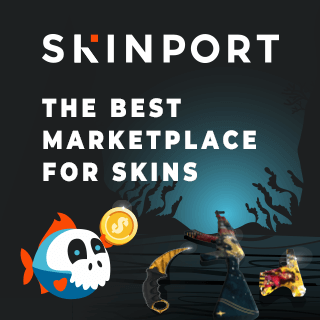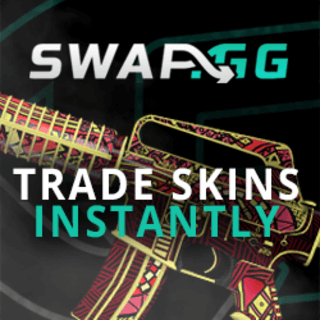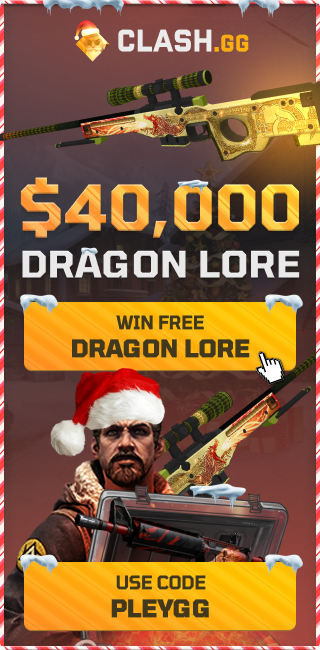The Evolution of Counter-Strike Economy: From In-Game Purchases to Betting
In the eSports industry, if there’s one game that’s on everyone’s lips, it’s Counter-Strike.
Even gamers that have never touched the game know about it. But this game is widely known not just for its gameplay or its impact on the eSports industry. Counter-Strike is also known for changing the concept of in-game economics.
From being a low-poly FPS game, it has turned into a modern icon of popular culture. This is in large part because of the in-game economy with skins.
So, how did this economic system start, and how did things get to where they are now? That’s what this article will help you see.
Counter-Strike: A Brief History
Before we start talking about the economy of the skins, let’s start with a brief history. In the beginning, Counter-Strike didn’t even have its own game. It was a mod for Valve’s popular game Half-Life.
But, as players started enjoying the first tactical shooter of its kind, Valve saw the potential for the game. This soon got remade with Counter-Strike: Source, which featured the all-new engine from Valve. This would go on for many years as the go-to for tactical shooters.
In 2012, Valve shook the world with the announcement of Counter-Strike: Global Offensive. It shook the video gaming and eSports industry altogether. And it would continue in the same way for almost a decade until the launch of CS2.
The Introduction of Skins and Cosmetic Items
Skins were introduced first in CS:GO. But it wouldn’t happen until a year later. With the Arms Deal update, Valve added weapon skins to the game. And these would forever change the concept of in-game economy forever.
Skins could be applied on any weapon, even on the player’s knife. Later updates also added glove skins and operator skins as well. Music kits also became a thing where the soundtrack would start playing if the player’s team won the round.
Purchasing the skins to change the look of the guns added a layer of personalization to the games. Players could express their tastes and styles through these skins. If standing apart from others was the goal, skins were the perfect conduit to do it.
Monetizing Skins: The Birth of an In-Game Market
Shortly before the Arms Deal update, Valve introduced its Community Market. There, players could buy and sell tradable in-game items for Steam currency. These could be used to purchase new items or games.
And over the years, this has changed drastically. You can now find skins that are worth thousands of dollars in some cases, depending on the quality and rarity. For instance, the Case Hardened Blue Gem Karambit is the most expensive Counter-Strike skin in the world, priced at over $2 million.
From Virtual Items to Real Money: The Proliferation of Third-Party Platforms
The astronomical prices commanded by certain skins catalyzed the creation of third-party platforms that facilitated the trading of these virtual items outside the Steam marketplace. With lower transaction fees and a user-centric approach, these platforms not only validated skins as an economic asset but also reflected the evolving relationship between virtual goods and real-world value.
The interest in skins underscored a broader trend within the gaming community: a keen interest in the principles of risk and reward that are fundamental to both gaming strategies and gambling pursuits. Indeed, this alignment is evident in the rise of platforms that cater to the New Zealand market, with the latest gambling websites for NZ players innovating at the intersection of gaming enthusiasm and gambling engagement. These platforms, while not directly involving skins, resonate with the gaming community's appetite for excitement and the thrill of the gamble, embodying a new era where the adrenaline of gaming blends seamlessly with the anticipation of gambling.
The integration of such interests speaks to a digital culture that embraces the convergence of different forms of online engagement. As these new websites gain traction among New Zealanders, they reflect the broader global trend of gaming and gambling intersecting in the digital age, creating novel experiences for enthusiasts and connoisseurs of both worlds.
Betting and Counter-Strike: An Unexpected Intersection
The simple trading sites would give rise to betting sites where players could use their skins. Instead of having to pay real money, using skins felt like a more lucrative option for gamers. And since CS:GO had a professional scene, it was the perfect opportunity to place bets on matches.
As this started gaining more traction, many popular betting sites were established. However, as they were not authorized by Valve, many of them had to deal with controversies and challenges when they started.
Parallel Growth: eSports and Betting
The betting industry grew alongside Counter-Strike as tournaments started getting bigger. Apart from standalone betting sites, sportsbooks also started offering betting options for CS:GO and other eSports.
Controversies and Reforms
As mentioned earlier, the trading and betting platforms had to deal with some controversies. Being unregulated, there was a lot of speculation regarding the legitimacy of the platforms. Since there was no oversight, underage players were more or less having full access to gambling. To keep itself safe from the scandal, Valve made sure to intervene and help take down some of the platforms that were engaged in these practices.
The Current State and Future of CS:GO's Economy
These days, the hype has died down quite a bit. Many fans thought that after the launch of CS2, the skin economy would experience a surge once again. For now, it’s still too early to tell. But one thing is clear as crystal; if betting were to make a massive comeback, it would need to be regulated if players don’t want a repeat of what had happened before.
Final Thoughts
Counter Strike’s economy gave us a glimpse of the potential that an in-game economy can have. However, the controversies and challenges that the game had to face are perhaps the reasons other companies are not trying similar things.
If the community wants to see further growth in this sector, then they will need to learn to navigate these challenges. That way, players can have a legacy of Counter-Strike for years to come.













